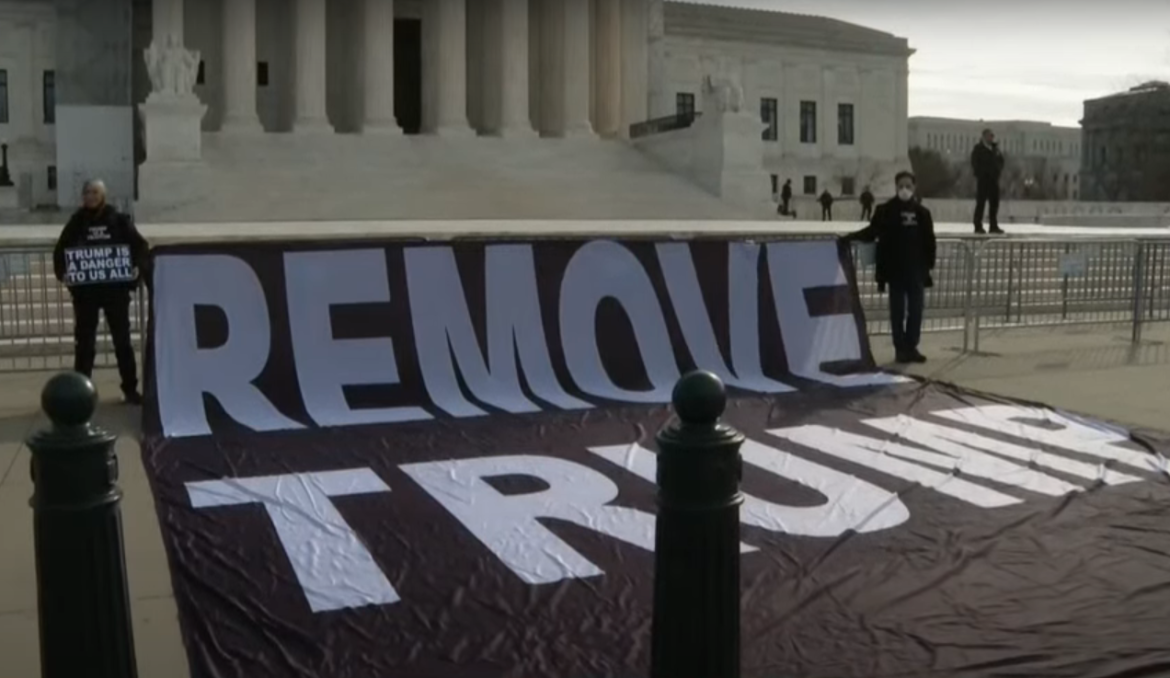In a landmark Supreme Court hearing, justices have concluded arguments on whether Donald Trump is ineligible for the 2024 presidential election based on his role in the Capitol riot. The case centers on the interpretation of the 14th Amendment and Colorado’s decision to remove Trump from its primary ballot.
SCOTUS Trump Hearing Is Over
The Supreme Court hearing on whether Colorado can remove Donald Trump from its primary ballot has come to an end. The state’s decision to disqualify Trump, citing his alleged engagement in the Capitol riot, has broader implications, with a ruling expected before the upcoming Super Tuesday primaries.
SCOTUS Trump Reacts
Former President Trump expressed optimism after the hearing, stating that he believes his legal team presented a strong case. Trump reiterated his denial of engaging in an insurrection on January 6th and criticized ongoing court cases against him.
SCOTUS Trump Arguments
During the hearing, Trump’s attorney, Jonathan Mitchell, argued that Section 3 of the 14th Amendment, which addresses insurrection, does not apply to the president. Mitchell claimed that the provision is meant for appointed officials, not elected presidents, challenging the Colorado Supreme Court’s decision.
SCOTUS Trump No Insurrection
Mitchell further contended that the 2021 attack on the U.S. Capitol was a riot, not an insurrection. This distinction, according to Trump’s lawyer, is crucial in determining Trump’s eligibility for the upcoming election.
SCOTUS Trump Skeptical
Justice Elena Kagan seemed skeptical of Colorado’s argument during the hearing. She questioned whether a single state should have the authority to decide which candidates can appear on the ballot for a national election, raising concerns about the potential precedent set by such a decision.
SCOTUS Trump Plaintiff
Colorado Attorney Jason Murray presented the state’s case, accusing Trump of engaging in an insurrection during the Capitol riots and violating the 14th Amendment. Murray argued that each state should retain the ability to determine its ballot contents.
As the Supreme Court weighs the arguments, the decision could have far-reaching consequences for the ongoing debate over Trump’s political future and the broader interpretation of the 14th Amendment in cases of alleged insurrection by former officeholders.



